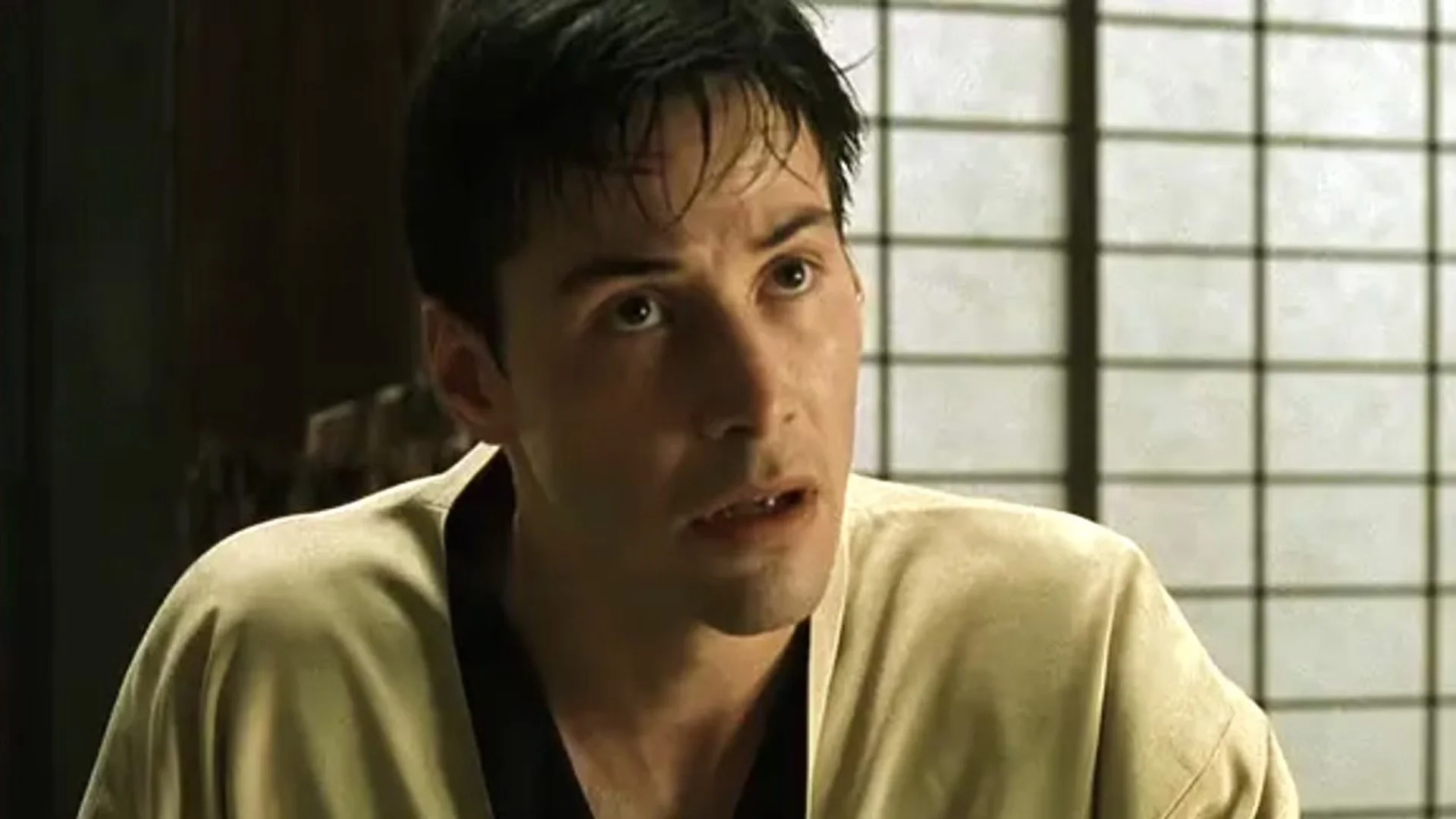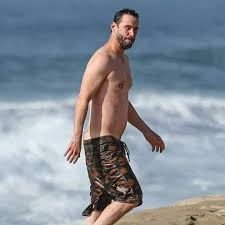Imagine stepping off a long drive from Toronto to Los Angeles, dreams of stardom buzzing in your head like a swarm of excited bees, only to be greeted with: “We want to change your name.” For a wide-eyed 20-year-old Keanu Reeves, this wasn’t just a quirky Hollywood quirk—it was a rite of passage that tested his identity, his resolve, and ultimately, his authenticity. In a recent revelation that’s got fans buzzing and the internet ablaze, Reeves shared the wild tale of how his manager pushed for a name swap, leading him to toy with monikers like “Chuck Spadina” before settling briefly on “KC Reeves.” But six months in, he couldn’t stomach it anymore, ignoring calls for “KC” in auditions until he reclaimed his birth name. “That’s like, a welcome to Hollywood [moment],” Reeves recounted with his signature understated charm. This story isn’t just a fun anecdote; it’s a window into the pressures of Tinseltown, the immigrant kid who refused to bend, and the man who became a legend precisely because he stayed true to himself. As we dive deep into Reeves’ early days, his defiant stand, and the career that exploded from it, prepare to be captivated by a tale of grit, humor, and unyielding self-belief. Could “Chuck Spadina” have dodged bullets in The Matrix? Thank goodness we’ll never know.
From Beirut to the Streets of Toronto: The Making of Keanu Charles Reeves
Keanu Reeves’ journey to Hollywood stardom began far from the palm-lined boulevards of LA, in the unexpected cradle of Beirut, Lebanon. Born on September 2, 1964, to Patricia Taylor, an English costume designer from Essex, and Samuel Nowlin Reeves Jr., a Hawaiian geologist of Chinese, English, Irish, Native Hawaiian, and Portuguese descent, young Keanu’s name—meaning “cool breeze over the mountains” in Hawaiian—was a poetic nod to his multicultural roots. But paradise was short-lived; his parents divorced when he was three, and Patricia whisked him and his sister Kim to Sydney, then New York, before settling in Toronto, Canada, in 1970. It was here, in the vibrant, multicultural mosaic of Toronto, that Reeves truly grew up, shaping the humble, introspective persona that would define him.
Toronto’s Yorkville neighborhood became his playground, but it was Spadina Avenue—a bustling artery of immigrant communities, streetcars clanging, and eclectic vibes—that left an indelible mark. “I grew up on a street called Spadina,” Reeves later reflected, a detail that would hilariously resurface in his name-change saga. Raised by his mother and stepfather Paul Aaron, a Broadway director who introduced him to the arts, Reeves navigated a nomadic education across four high schools, including the arts-focused Etobicoke School of the Arts and De La Salle College. Dyslexia made academics a struggle, but the ice rink was his sanctuary. A passionate hockey goalie nicknamed “The Wall,” he dreamed of playing for Canada in the Olympics—until a knee injury at 17 derailed that path. Instead, the stage called. At 15, he landed his first role in a community theater production of Damn Yankees, igniting a spark that led to commercials, short films, and Canadian TV gigs.
By 16, Reeves was a professional actor, dropping out of high school (or getting “kicked out,” as he quipped in interviews) to pursue his craft full-time. Toronto’s film scene was booming in the ’80s, and Reeves dove in headfirst. He appeared in CBC’s Hangin’ In (1984), a quirky comedy series, and made his feature debut in Youngblood (1986), a hockey drama starring Rob Lowe and Patrick Swayze—foreshadowing his future bromance with Swayze in Point Break. But Canada could only take him so far. At 20, armed with a green card from his American stepfather and a beat-up Volvo, Reeves hit the road for LA, chasing the big break. Little did he know, his first “welcome” would challenge the very essence of who he was.

, young Keanu Reeves in a Maple Leafs jersey, capturing his Toronto roots and hockey passion.
The Name Game: Hollywood’s Pressure Cooker and Reeves’ Wild Ideas
Arriving in LA in 1984, Reeves was raw talent personified—tall, brooding, with an exotic name that stood out in a sea of Smiths and Johnsons. But to his new manager, that uniqueness was a liability. “We want to change your name,” they declared, citing the industry’s bias against “ethnic” or hard-to-pronounce monikers. In the ’80s, Hollywood was a conformity factory, where stars like Winona Ryder (born Horowitz) and Whoopi Goldberg (Caryn Johnson) reinvented themselves for marketability. Reeves, with his Hawaiian first name, was seen as too “foreign” for mainstream appeal. Stunned, he wandered the beach, pondering the absurdity. “My name? What if I change my name? What?” he recalled.
Enter the brainstorming session that could have altered pop culture history. Drawing from his middle name, Charles, Reeves floated “Chuck.” Pairing it with Spadina—the Toronto street synonymous with his upbringing—he landed on “Chuck Spadina.” It had a ring, evoking a tough-guy detective or a comic book hero, but it screamed eccentricity. Next up: “Templeton,” perhaps inspired by Charlotte’s Web‘s rat or some fleeting whim. “And then I was something Templeton,” he laughed in retrospect. Ultimately, pragmatism won: “KC Reeves,” a compromise that kept his initials while softening the exotic flair.
For a brief spell, “KC Reeves” became his professional alias. His IMDb page bears the evidence: credited as such in the 1986 Disney anthology series The Magical World of Disney, specifically the episode “Young Again,” where he played a supporting role alongside Robert Urich. Other early credits flirted with variations—”K.C.” or “Casey Reeves”—in TV movies like NBC’s Babes in Toyland (1986), a whimsical adaptation where he portrayed Jack Nimble, and HBO’s Act of Vengeance (1986), a gritty drama about union corruption. A resurfaced audition reel from the era shows a fresh-faced Reeves introducing himself as “K.C.,” his delivery earnest yet tentative. These roles were stepping stones, but the pseudonym chafed. “I was credited as KC Reeves… And then I couldn’t do it,” he admitted.

Young Keanu Reeves in an early film role, around the time he was credited as KC Reeves.
The Turning Point: Ignoring the Call and Reclaiming Keanu
Six months into the experiment, the facade cracked. At auditions, when “KC Reeves” was called, he sat silent, a quiet act of rebellion. “I wouldn’t even answer,” he shared. This wasn’t diva behavior; it was a young man grappling with identity in an industry that demanded assimilation. Hollywood’s “welcome” moment crystallized for him the superficiality of fame—change your name, change yourself, all for a shot at the spotlight. But Reeves, shaped by Toronto’s diverse streets and his mother’s bohemian influence, chose integrity over expediency. “I’m not doing this,” he declared, reverting to Keanu Reeves by 1987.
This stand wasn’t without risk. In an era when agents wielded godlike power, defying advice could tank a career. Yet, it paid off. His breakthrough came with River’s Edge (1986), credited as Keanu, a dark indie where he played a troubled teen opposite Crispin Glover and Dennis Hopper. Critics noticed his raw intensity, paving the way for Bill & Ted’s Excellent Adventure (1989), where his slacker charm as Ted “Theodore” Logan made him a household name. “Whoa” became a cultural catchphrase, and suddenly, “Keanu” wasn’t a hindrance—it was iconic.
Reflecting on it years later, Reeves sees the humor and the lesson. On The Tonight Show in 2017, he regaled Jimmy Fallon with the “Chuck Spadina” tale, eliciting roars of laughter. More recently, on the New Heights podcast with Travis and Jason Kelce, he revisited the story, framing it as a pivotal “Hollywood moment.” It’s a reminder that authenticity wins; in a town of facades, Reeves’ refusal to conform made him stand out.
Rising Through the Ranks: From Indie Darling to Action Icon
Post-name saga, Reeves’ career skyrocketed, blending indie cred with blockbuster brawn. The ’90s were a whirlwind: Point Break (1991) showcased his athleticism as FBI agent Johnny Utah, surfing waves and skydiving sans stunt double. My Own Private Idaho (1991) with River Phoenix revealed his dramatic depth, while Bram Stoker’s Dracula (1992) pitted him against Gary Oldman in Gothic splendor. But Speed (1994) launched him into stratospheric fame, his LAPD bomb expert Jack Traven saving Sandra Bullock (and the bus) with edge-of-your-seat tension.
The pinnacle? The Matrix (1999), where as Neo, he bent spoons, dodged bullets, and redefined sci-fi. Grossing over $460 million, it spawned sequels and cemented Reeves as a philosophical action star. Off-screen tragedies—his father’s abandonment, sister’s leukemia battle, the stillbirth of his daughter with Jennifer Syme in 1999, and Syme’s fatal accident in 2001—forged his stoic humility. “Grief changes shape, but it never ends,” he once said, endearing him to fans as the “internet’s boyfriend.”
The 2000s brought eclectic choices: Constantine (2005), A Scanner Darkly (2006), and the cult flop 47 Ronin (2013). A dip in the mid-2010s—Knock Knock (2015), anyone?—led to a renaissance with John Wick (2014). As the bereaved assassin, Reeves channeled personal loss into balletic violence, spawning a franchise that’s grossed over $1 billion. “John Wick is me,” he joked, but the role’s quiet intensity mirrors his own.
The Man Behind the Myth: Philosophy, Philanthropy, and Why We Love Keanu
Reeves’ name rebellion speaks to his core values: humility, kindness, authenticity. He’s donated millions anonymously to children’s hospitals, leukemia research, and crew members—quietly giving motorcycles to Matrix stuntmen. His philosophy? “Be excellent to each other,” echoing Bill & Ted. In a 2019 viral moment, he called fans “breathtaking” at E3, sparking memes and adoration.
At 61, Reeves shows no signs of slowing. John Wick: Chapter 5 looms, alongside Sonic the Hedgehog 3 (voicing Shadow) and The Book of Elsewhere, a novel co-written with China Miéville. Romantically linked to artist Alexandra Grant since 2019, he’s found quiet joy. And that beach walk where he pondered “Chuck Spadina”? It symbolizes his enduring introspection.

Keanu Reeves on Malibu beach in 2021, reminiscent of his reflective walks during the name-change dilemma.
This story reminds us: In Hollywood’s machine, staying true can be the ultimate power move. Keanu didn’t just keep his name—he owned it, turning “Keanu Reeves” into a synonym for cool. As fans, we’re grateful he ditched “Chuck”—the world needed Keanu.





